Tyrosine Kinase
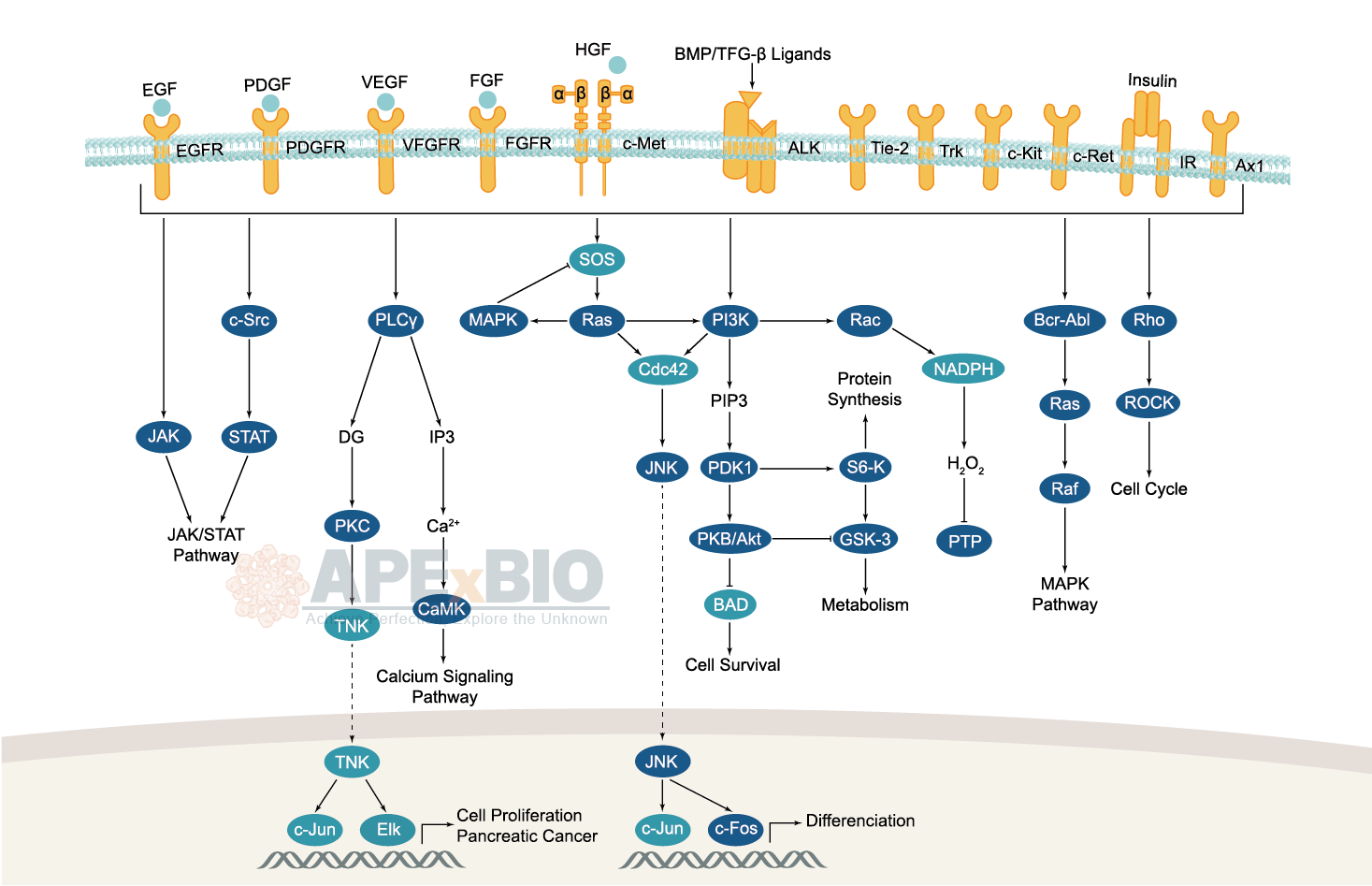
Receptor tyrosine kinases bind to extracellular ligands/growth factors, which promotes receptor dimerization and autophosphorylation of receptor tyrosine residues. This triggers a cascade of downstream events through phosphorylation of intracellular proteins that ultimately transduce the extracellular signal to the nucleus, causing changes in gene expression. Receptor tyrosine kinases include EGFR/ErbB, PDGFR, VEGFR, FGFR and MET subfamilies etc. Dysfunctions in tyrosine phosphorylation are linked to oncogenic transformation. In additions, various adaptor and effector proteins couple to carboxy-terminal of an active kinase. For instance, binding of the GRB2 adaptor protein activates EGFR and MAPK/ERK signaling.
Non-receptor tyrosine kinases involve many well-defined proteins (e.g. the Src family kinases, c-Abl, and Jak kinases) and other kinases which regulates cell growth and differentiation. For example, Src family kinases are curial for activating and inhibitory pathways in the innate immune response.
-
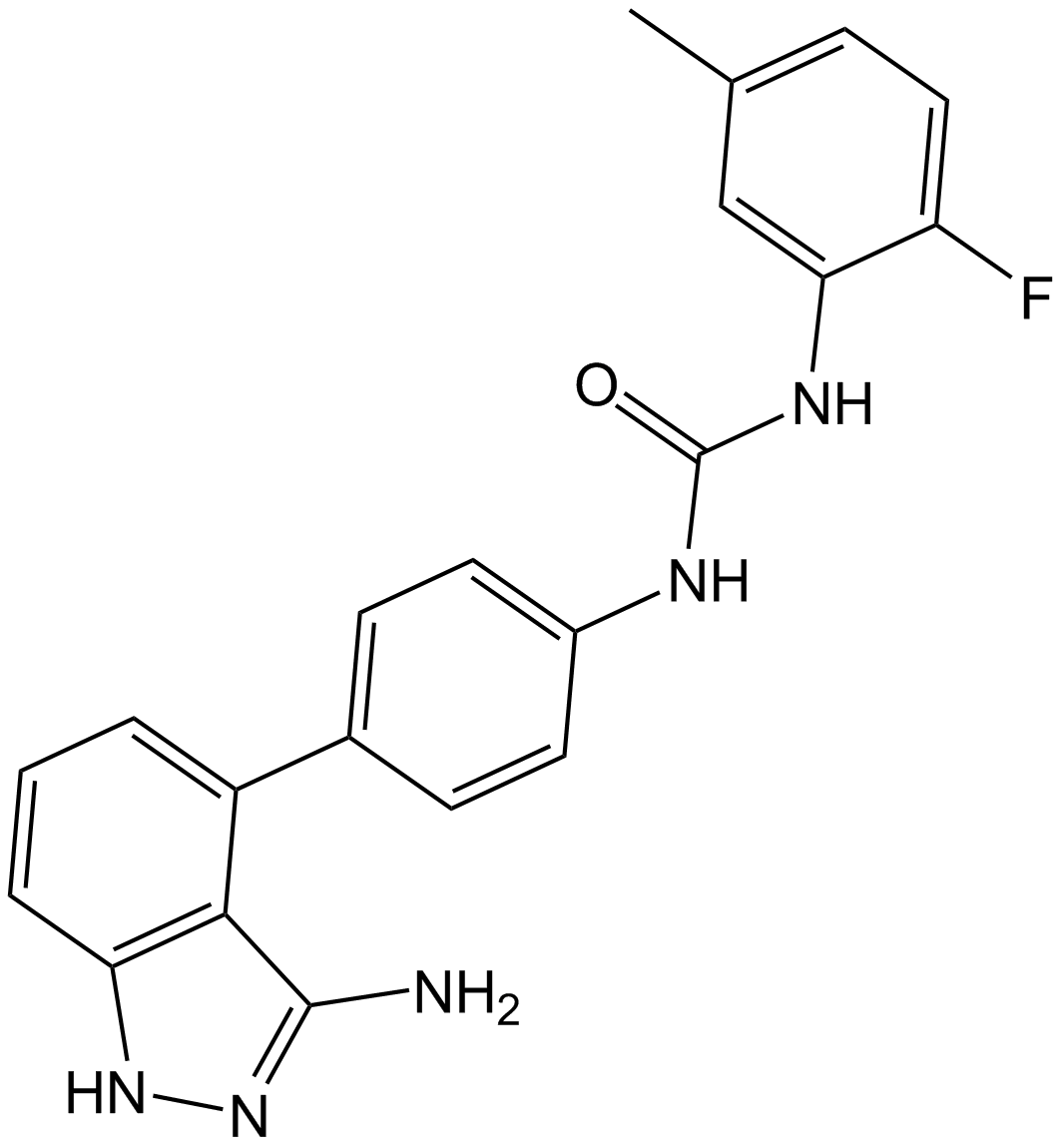 A2949 Linifanib (ABT-869)Target: VEGFR|PDGFRSummary: VEGFR/PDGFR inhibitor
A2949 Linifanib (ABT-869)Target: VEGFR|PDGFRSummary: VEGFR/PDGFR inhibitor -
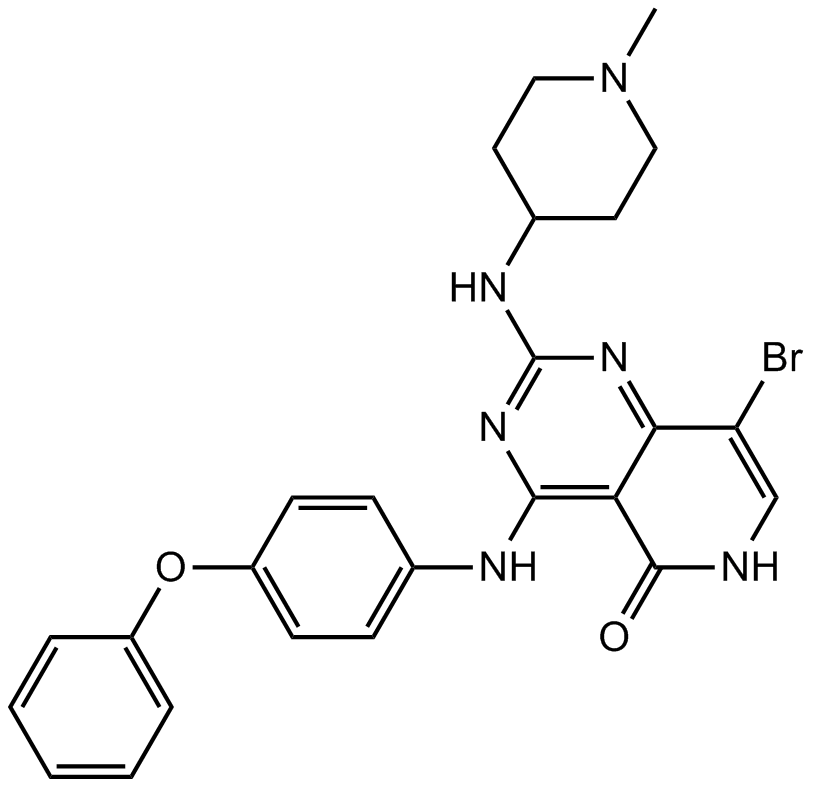 A8889 G-749Target: Aurora Kinases|FLT3|c-RETSummary: FLT3 inhibitor
A8889 G-749Target: Aurora Kinases|FLT3|c-RETSummary: FLT3 inhibitor -
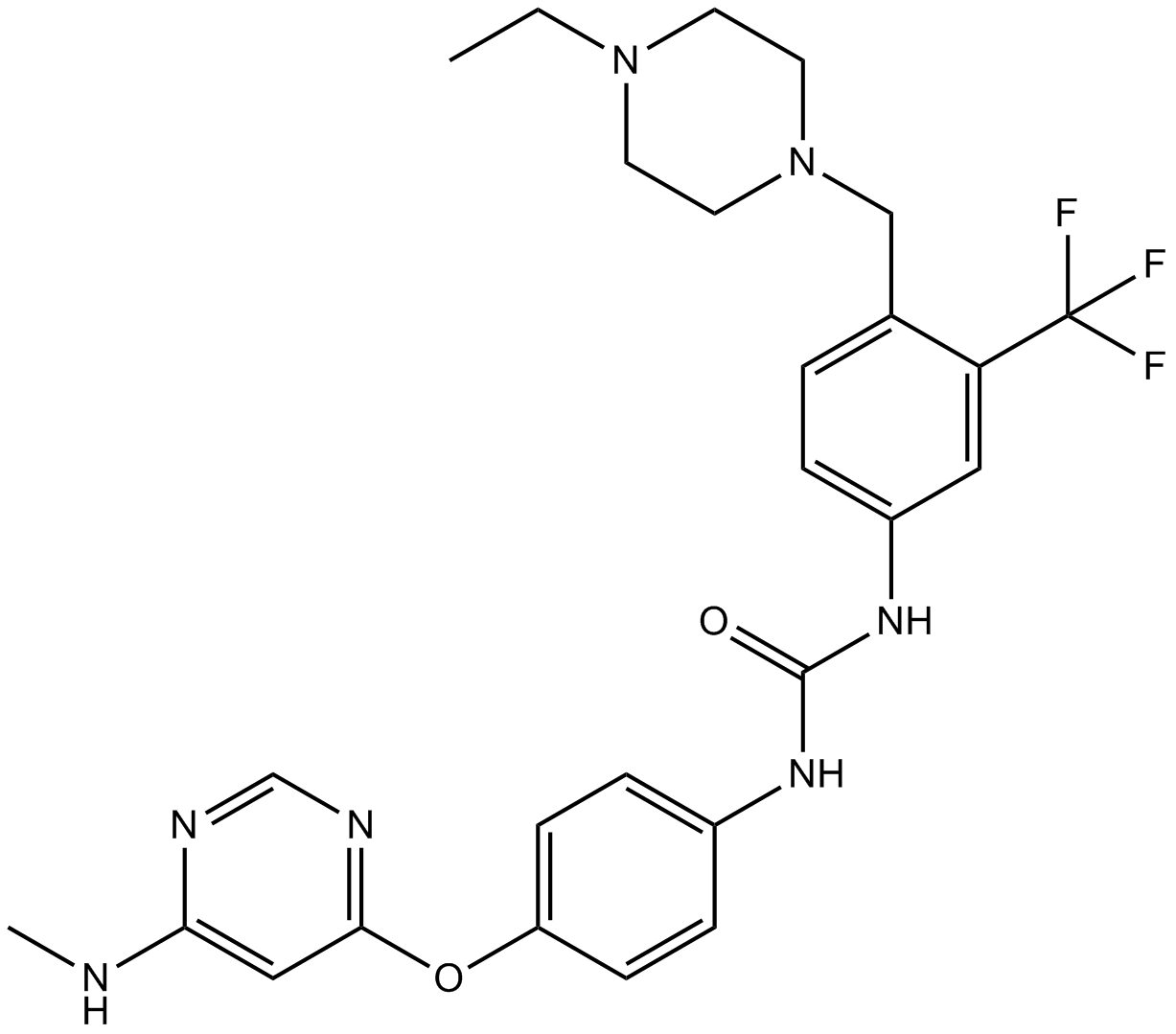 A3194 AST 4871 CitationTarget: RETSummary: RET kinase inhibitor
A3194 AST 4871 CitationTarget: RETSummary: RET kinase inhibitor -
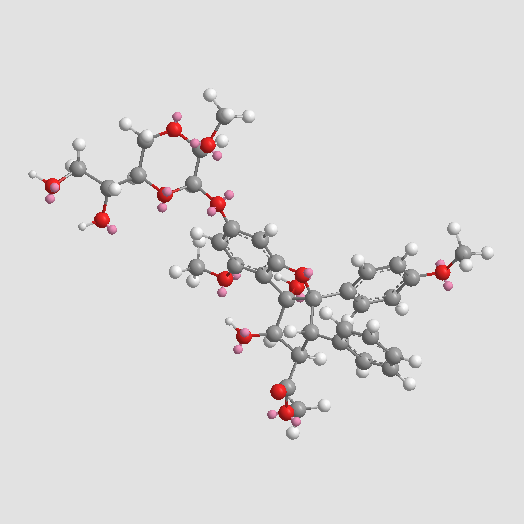 A3818 SilvestrolSummary: Antineoplastic
A3818 SilvestrolSummary: Antineoplastic -
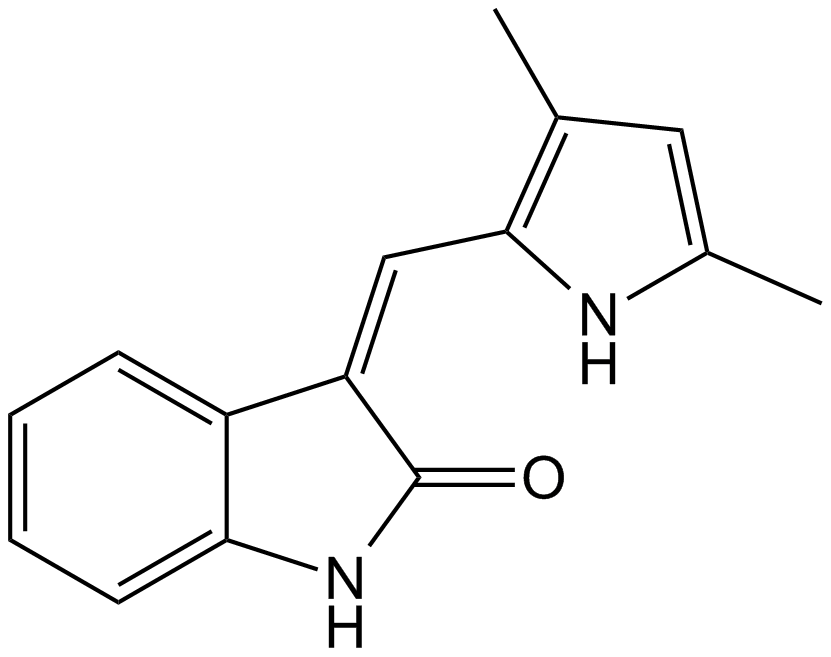 A3847 SU5416Target: VEGFRSummary: VEGF receptor inhibitor and AHR agonist
A3847 SU5416Target: VEGFRSummary: VEGF receptor inhibitor and AHR agonist

